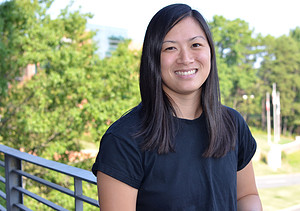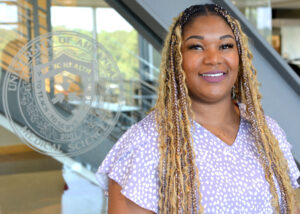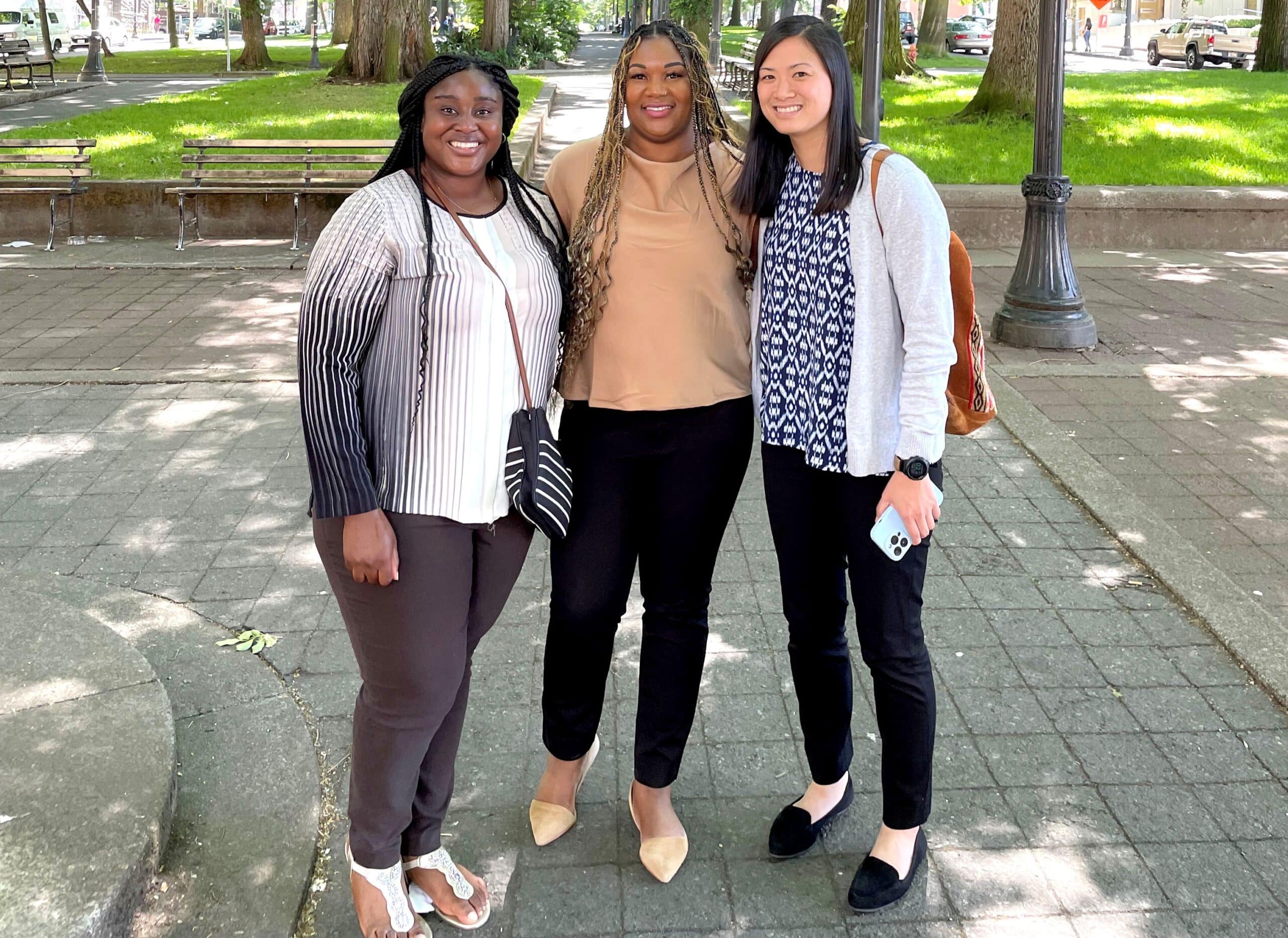UAMS College of Public Health Epidemiology Students Benefit from SERvisits Initiative
| A group of students from the University of Arkansas for Medical Sciences (UAMS) Fay W. Boozman College of Public Health’s Department of Epidemiology attended the Society for Epidemiologic Research (SER) conference in Portland, Oregon, thanks to a partnership that promotes diversity.
At the event, the students received a chance to attend symposiums, present research and network.
The students’ attendance was thanks to UAMS’ affiliations with the 2023 SERvisits initiative, which promotes increased diversity of its membership and supports an inclusive environment. Among the ways that SERvisits achieves its goal is by allowing its partnering groups to select students from underrepresented backgrounds to attend the annual conference.
Kari Weber, Ph.D., assistant professor in the Department of Epidemiology, said that being a part of SER and the SERvisits initiative feeds into the college’s mission to provide students with a comprehensive and rigorous education that prepares them for a rewarding career in epidemiologic research, practice and education.
“It’s important to give students from underrepresented communities access to educational and professional opportunities — like what the SER conference offered,” Weber said. “A goal of the epidemiologic community is to improve health equity, and the best way to do that is by including a broad range of perspectives and ideas in epidemiologic research. Including students from diverse backgrounds in research and urging them to later become mentors themselves will help achieve that goal.”
Students in the college say the program has been beneficial.

Rachel Lovell was among a group of students from the epidemiology program to attend the 2023 Society for Epidemiologic Research conference.
“The SERvisits program is important because it promotes representation and opportunities for students who may not otherwise be able to attend the conference,” said Rachel Lovell, a doctoral student in the epidemiology program. “Financially, I don’t know if I would’ve been able to attend the conference without the SERvisits project. It’s a credit to the Robert Wood Johnson Foundation that provides funding for students like me to attend the conference.”
Danielle Boothe, an epidemiology doctoral student who is working on her dissertation, was also grateful for how the project allowed her to experience the event.
“Being at the conference helped me see and understand what other people in the field of epidemiology are doing,” Boothe said. “That made a big impact on me, seeing and learning how professionals conduct their duties. The workshops, the presentations and the discussions of the conference were informative.”

Danielle Boothe was among a group of students from the epidemiology program to attend the 2023 Society for Epidemiologic Research conference.
For students like Lovell and Boothe, both of whom are minorities, the conference and SERvisits emphasizing access to educational opportunities for all are invaluable.
“I give the conference a rating of 10 out of 10,” Boothe said. “I loved how it was student-focused. Student enrichment was a big focus. The students led most of the presentations and workshops.”
Lovell continues to benefit from the meeting as her assigned mentor has connected her with other epidemiology students.
“Receiving a mentor at the conference was important for me,” Lovell said. “Since then, my mentor has given me advice on how to pursue research, and I’ve also had the opportunity to interact with her students and attend their research meetings. I’ve received feedback and learned a lot from her students.”
